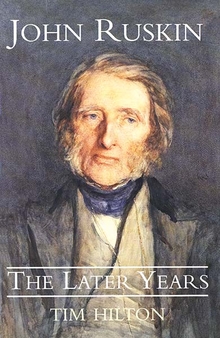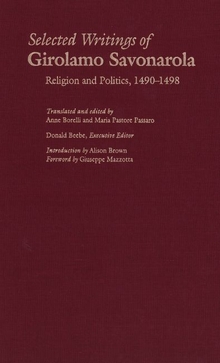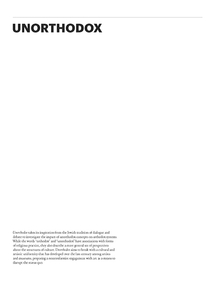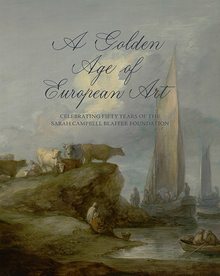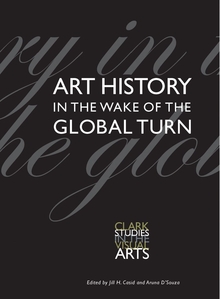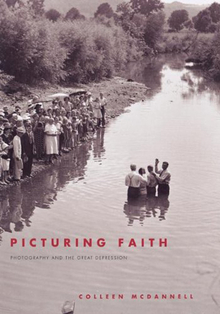John Ruskin
WARNING
You are viewing an older version of the Yalebooks website. Please visit out new website with more updated information and a better user experience: https://www.yalebooks.com
The Later Years
Tim Hilton
The book begins in 1859, when Ruskin, a famous author with a disastrous marriage behind him, is living with his parents, writing and traveling, and tutoring—among other pupils—Rose La Touche, a girl of ten, with whom he slowly falls in love. Hilton recounts how this relationship developed into one of the saddest love affairs of literary history, ending in tragedy in 1875. Thereafter, says Hilton, Ruskin’s life was punctuated by bouts of insanity and despair that culminated in total breakdown for the last ten years of his life. During these years, however, his intellect and imagination reached new heights, as he produced Praeterita and most of Fors Clavigera, the series of monthly letters to British workers. Hilton’s magisterial narrative follows Ruskin through this period and shows that he was the most eloquent and radical of all the great Victorian writers.
“Mr. Hilton’s book provides important information about Ruskin and his family context and is essential reading for those interested in the sage’s final years.”—Albion
“Tim Hilton’s John Ruskin: The Later Years, together with The Early Years, seems to me the model biography of a cultural figure. The book is fluid for all its length, judicious about a notoriously fractious subject, and unpretentiously literate throughout. . . . The book is suffused with Hilton’s intimate knowledge of Ruskin’s enormous production, so at every point the narrative is telling us what we need to know—about the life to appreciate the work, about the work to appreciate the life, or about the culture to appreciate them both. Taken together, Hilton’s two volumes constitute an amazingly organic achievement, a triumphant telling of one of the saddest stories ever told.”—Dave Hickey, Art Forum
“[This book] is far and away the best biography of Ruskin. We understand the man—or at any rate many key aspects of the man—better than we have ever understood him before. . . . There are a great many pleasures and rewards in this deeply felt and often superbly achieved work of the biographer’s art.”—James Turner, Books & Culture
“This second volume of Hilton’s biography of Ruskin fulfils in every way the promise of the first, John Ruskin, The Early Years. Ruskin’s prodigiously productive and poignantly troubled life has never been presented more responsibly or readably. . . . A century after his death, Ruskin has the biography he deserves.”—Choice
“Superb . . .beautifully written . . .Ruskin was one of the towering figures of his age. He has received one of the towering biographies of ours.”—Geoffrey Wheatcroft, Daily Mail
“Magisterial.”—William Packer, Financial Times
“Magnificent.”—Guy Davenport, Harper’s Magazine
"[A] well structured, fluent and informative biography."—Joyce Wilson, Keswick Reminder
“Hilton’s research, years of reading Ruskin, and attention to detail make this biography very personal and readable—and probably the definitive account on Ruskin.”—Library Journal
“A passionate . . . and remarkable book . . . . convincing and poignant.”—Sarah Quill, Literary Review
“Hilton’s is a loving, sensitive and very readable biography of one of the most wide-ranging minds of the 19th century.”—Paul Mitchinson, National and Financial Post
“Opening when its subject is 40 and a rising authority on aesthetics, Volume 2 of this vast biography charts Ruskin’s unraveling from passionate cataloger (rocks, plants, buildings, paintings, clouds) to tragic obsessive (irrigation, drainage, running water, little girls).”—New York Times “And Bear in Mind”
“A work of astoundingly vigorous biographical assimilation and fine critical wisdom. Here’s Ruskin’s immense labor—all those words, all that hoarding, gathering and cataloging of rocks, people, pictures and impressions--made comprehensible and happily handleable. . . . ‘There is . . . a ray of real Heaven in poor Ruskin.’ If we get any sense of what Carlyle meant by that, it will be because of the great rays of light Hilton’s admirable work now sheds on the man.”—Valentine Cunningham, New York Times Book Review
“A literary biography brimming over with detail and nuance.”—Douglas Fetherling, Ottawa Citizen
“An acute critic of Ruskin’s writing, Hilton has fulfilled the biographer’s job of giving us the man. He has done so magnificently. Having met Ruskin, we are free to turn to his writings, which will only deepen our sense of gratitude to Hilton for introducing us to this crucial character.”—Tom D’Evelyn, Providence Sunday Journal
“Hilton’s morbid fascination with Ruskin’s descent into his long, precarious twilight will keep the reader turning the pages.”—Publishers Weekly
“Now that it is complete, Hilton’s book takes its place among the foremost modern literary biographies.”—John Gross, Sunday Telegraph
“A masterpiece of investigative scholarship and a work of generous and engrossing humanity.”—John Carey, Sunday Times
“John Ruskin emerges saner and wiser than ever in a new biography.”—The New Yorker
“Ruskin emerges from Hilton’s magnum opus as the ideal teacher: kindly, exacting, temperate, able to draw on an inexhaustible store of intellectual example.”—Anthony Lane, The New Yorker
“All those who care about Ruskin and who wish better to understand his life and work are now deeply in [Hilton’s] debt . . . Now at last, thanks to Hilton, Ruskin has the grand, scholarly biography he deserves. . . . Hilton’s two-volume biography will be an indispensable reference work for students of Ruskin for years to come.”—David Barrie, The Tablet
“An inspiring volume . . . we are rewarded with [a biography that] radiate[s] the energy and magnificence of its subject.”—Peter Ackroyd, Times
“Simply magnificent: one of the great modern literary biographies.”—Clive Wilmer, Times Literary Supplement
“What a golden age this is for readers of literary biography! . . . Just as stupendous in research and intelligence as volume one was. . . . The sheer hard work that goes into a book like this makes some of our critical snobberies and categories look silly. And when the research surfaces in prose of this quality, then it merits the encomium ‘work of art’ very much more, I think, than is the case with a thousand or two of this year’s novels and books of poetry.”—Don Coles, Toronto Globe and Mail
“Both volumes need to be included. This is the 2nd volume, which chronicles the sufferings, sadness, and artistic growth of John Ruskin. Covers 1860 to his death in 1900.”—Ruth Jean Shaw, University Press Books for Public and Secondary School Libraries
“The second part of Tim Hilton’s wonderful protracted wrestling match with the surprising life and times of John Ruskin makes a captivating story of the great Victorian aesthete’s slow drag into grand private despairs, ranting public dyspepsias and final madness. . . . Taken together, [John Ruskin: The Early Years and John Ruskin: The Later Years] constitute the finest and fairest life of Ruskin that has yet been written. It is likely to remain the standard work for a long time to come. . . . To every phase of Ruskin’s highly variegated literary oeuvre Mr. Hilton brings a judicious and informed critical intelligence. It has taken 100 years, but in Tim Hilton, Ruskin has found the champion he deserves.”—Hilton Kramer, Wall Street Journal
“To those of us who know our Ruskin mainly from snippets, Hilton provides welcome guidance and encouragement. . . . Can any biography, no matter how fine and authoritative, repair the crumbled edifice that is John Ruskin? Perhaps not. But true scholarship needs no justification at the bookstores. It is its own reward. Tim Hilton has obviously spent much of his maturity in the study of Ruskin’s life and work; his 1,000 pages will be honored and consulted after most of this years’ fast-moving bestsellers have long been forgotten. He tells, moreover, as enthralling a story as any triple-decker Victorian sensation novel, especially for anyone who has ever loved hopelessly or suffered debilitating depression while trying to get on with his daily work. . . . Who wouldn’t want to know more about such a man? And in Tim Hilton’s two volume life, we have the means and the opportunity to do so. Seize them.”—Michael Dirda, Washington Post Book World
Publication Date: June 1, 2000

